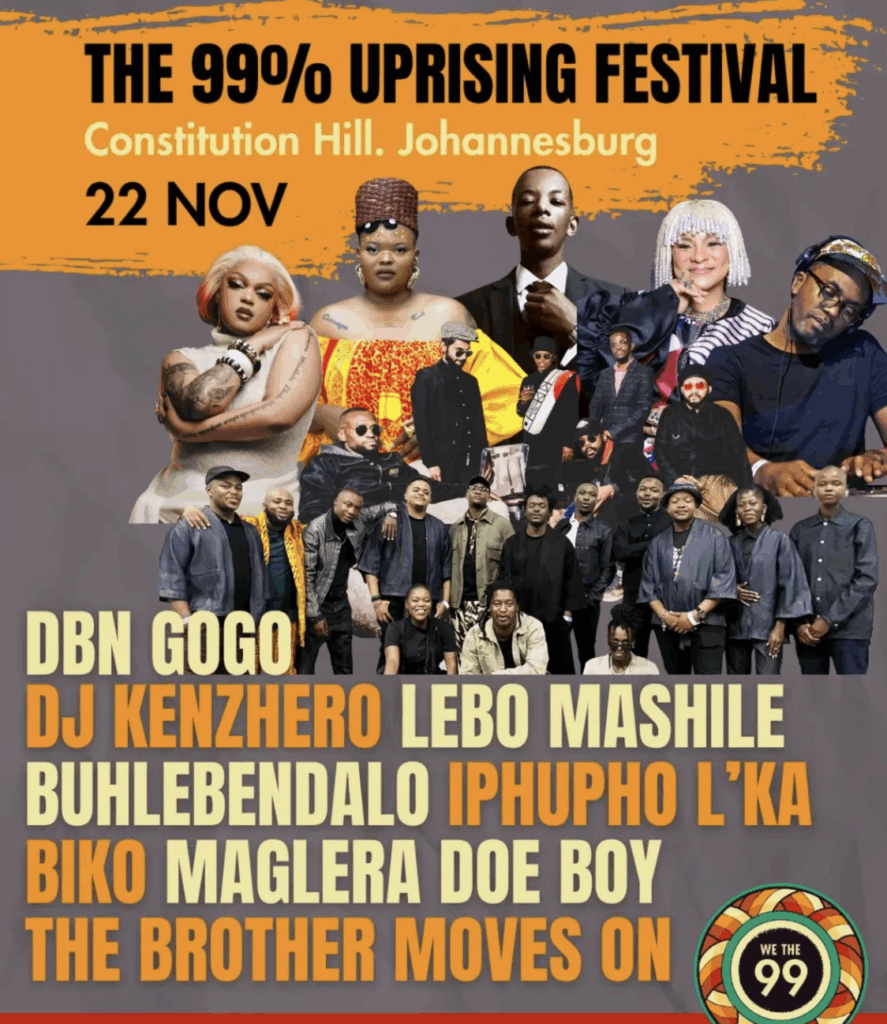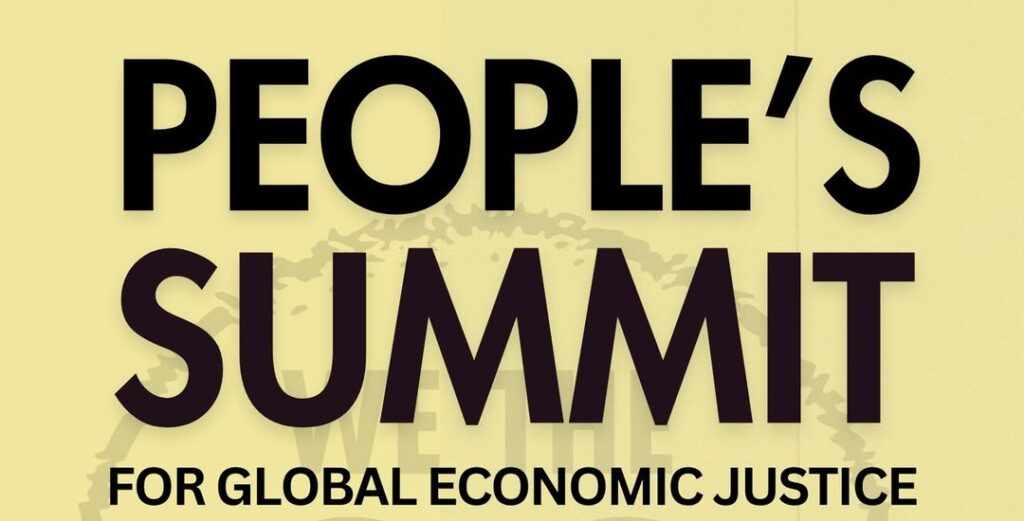We The 99 People’s Summit brings global justice movements, artists, and youth together at Constitution Hill as a counterpoint to the G20 Summit.
As world leaders prepare for the G20 Summit at Nasrec (22–23 November 2025), a different kind of gathering will unfold across the city. From 20–22 November, the We The 99 People’s Summit will take over Constitution Hill with a three-day programme led by grassroots organisers, artists, workers, and young activists from across Africa and the Global South.
The summit positions itself as a counterpoint to G20 decision-making. It is a reminder that economic policy shapes the lives of ordinary people long after global leaders leave. Instead of closed rooms and restricted access, organisers are promising open dialogue, movement spaces, and cultural interventions designed by the communities most affected by inequality.

Registration is free via their website. Attending the summit guarantees entry to The 99% Uprising Festival on 22 November. The lineup includes DBN Gogo, Maglera Doe Boy, The Brother Moves On, Lebo Mashile, and iPhupho L’ka Biko. For those not attending the summit, festival tickets cost R350.
Speakers from global justice networks have framed the event as a necessary turning point.
“It is political choices made by elites and billions that have deepened inequality and destroyed environments that sustain communities,” said Kearabetswe Moopelo of the New Economy Hub. “The people who created this crisis cannot be the ones to fix it.”
Jenny Ricks, General Secretary of the Fight Inequality Alliance, highlighted how young people, carers, workers, and small-scale farmers around the world have been raising the alarm. “The system is rigged for the 1% against the rest of humanity and the planet,” she said.

Across the three days, Constitution Hill will host political dialogues, movement barazas, art installations, workshops, and performances by artists whose work blends cultural storytelling with social resistance. The aim is not simply to critique global economic systems. It is to model people-centred alternatives in real time. These are practices of care, organising, and shared imagination.
For organisers, the summit is less an event and more a collective declaration. Economic governance must be reshaped by ordinary people, not designed for them behind closed doors.




